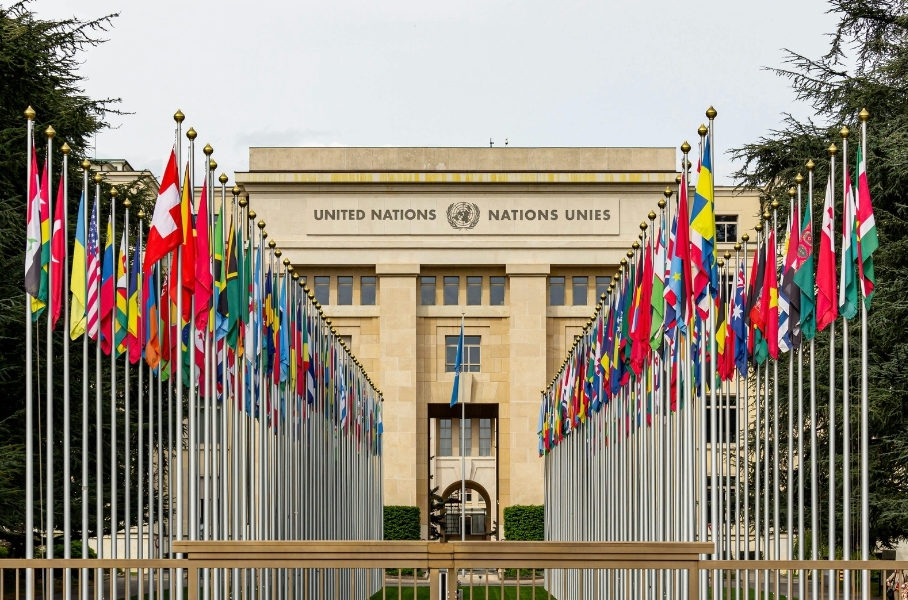
Excessive social media usage is hindering your future
Posted by
While we often romanticize youth as a time of beauty, energy, and endless possibilities, its most precious asset is time. As we transition into adulthood, we assume responsibilities like rent, mortgages, jobs, relationships, children, and caring for elderly parents. These responsibilities often leave little room for personal time and pursuing our goals, a stark contrast to the perception of youth.
Yet, nearly 90% of teens spend a significant portion of their days scrolling through online platforms rather than investing in self-improvement and laying a solid foundation for their future goals. Teens wasting time is nothing new — it’s just gone digital. This blog explores this growing trend and suggests alternatives for better time management.
The social media era of wasting time
Nine out of ten U.S. teenagers between 13 and 17 use social media daily. Even more alarmingly, a 2023 U.S. survey revealed teenagers spend an average of 4.8 hours on social platforms each day — girls, about 5.3 hours, and boys, about 4.4 hours. YouTube (1.9 hours/day) and TikTok (1.5 hours/day) remain the top choices, with boys preferring YouTube and girls favoring TikTok.
Consider this: Spending five hours a day on any activity typically allows someone to develop a skill or talent well beyond average. However, spending that time scrolling through mostly fabricated images of people's appearances and lives? Not so much.
Social media addiction parallels other addictive behaviors, potentially harming teens by disrupting healthy habits. Researchers at Stanford University suggest that excessive social media use can hyperactivate the brain's reward system, triggering pathways similar to addiction. Surgeon General Dr. Vivek Murthy said the threat social media poses to children requires urgent action, and he recommended Congress put a label on the apps as it does with cigarettes and alcohol.
“The mental health crisis among young people is an emergency — and social media has emerged as an important contributor,” Murthy said, citing several studies, including a 2019 American Medical Association study showing that teens who spend three hours a day on social media double their risk of depression. Consequently, nearly two-thirds of teens say that anxiety and depression play a major part in their (and their peers’) lives. Coincidence? Perhaps not.
Research has linked excessive social media usage to attention deficits, feelings of social exclusion, and sleep disturbances among adolescents. Dr. Murthy's advisory emphasizes that adequate sleep is vital for teens' healthy development.
Social media shrinks attention spans and hinders brain development, squandering the most valuable asset of youth: time. Rather than investing in meaningful activities that foster personal growth and skill acquisition, excessive social media use risks undermining overall well-being and future prospects.
Boost your mental health; put down your device
In recent years, extensive research has underscored the detrimental impact of social media on adolescent mental health. Teens spending over three hours a day on social media can double their risk of depression and anxiety.
Social media often presents an altered, stranger-filled reality, leading teens to mistakenly believe this fabricated world represents an achievable standard. Heavily edited images obscure the truth; nearly 90% of social media users modify their photos. “Flawless” Influencers achieve their appearances not only through rigorous diets and exercise alone but also through filters like the 'skinny filter' on TikTok and 'perfect face' filters on Instagram.
This exposure to unrealistic standards can profoundly affect teens, fostering feelings of inadequacy, loneliness, and a distorted self-image. It has been linked to serious conditions such as eating disorders, body dysmorphia, and depression.
Social media often exposes teens to superficial advice and opinions from self-proclaimed experts. Algorithms, not actual expertise, become the influencers. When many people engage, it creates an echo chamber of misinformation and unrealistic ideals- narrowing teens' worldviews. Since the human brain continues developing until age 25, adolescents are particularly vulnerable to skewed information and harmful comparisons. Misguided guidance during these formative years can significantly impact their future personal and professional lives.
Protecting your future now
Today, various social media platforms have unfortunately become hunting grounds for predators targeting vulnerable adolescents. These platforms attract adults seeking to exploit teens — whether through sexual coercion, financial extortion using intimate images, or grooming for sex trafficking.
Engaging in critical thinking and tackling complex tasks during your teen years is crucial. Adolescence is a period of significant cognitive and emotional development, and exposing oneself to challenging situations can foster resilience, problem-solving skills, and perseverance.
Joe de Sena's study suggests that our brains benefit from taking on difficult challenges. When we push ourselves mentally and physically, we create pathways in the brain that can enhance our ability to handle adversity in the future. This concept aligns with theories of neuroplasticity, which indicate that the brain can reorganize itself in response to learning and experience.
In contrast, passive activities like spending excessive time on social media platforms such as TikTok, while entertaining, typically do not provide similar cognitive or physical challenges nor encourage critical skill development.
Seeking out challenging experiences during adolescence makes sense from both a psychological and neurological standpoint. Balance leisure activities with opportunities requiring effort, problem-solving, and perseverance to support healthy cognitive development and prepare for future challenges.
Instead of wasting hours on social media, teens should invest their time in activities that foster skill development, cultivate talents, and instill discipline routines. Allocate these hours to sports, music, art, research, learning, workshops, mentorships, chores, and other constructive pursuits. Engaging in such activities enhances cognitive abilities and skill sets and promotes personal growth and self-reliance, equipping teens to achieve their aspirations and navigate adulthood competently.
Time to change the pattern
Embrace time management and discipline. Adulthood approaches quickly, so work on developing strong time-management skills. Completing challenging tasks, cultivating daily habits supporting your goals, and exercising discipline.
- Limit social media use: while technology is a powerful tool for learning and research, moderation is key. Instead of focusing on others' curated lives, prioritize building your knowledge and skills through online educational resources.
- Get to know yourself. Prioritize understanding yourself and your goals. Avoid behaviors (like unhealthy eating habits and laziness) and relationships (like associating with toxic people) that interfere with your personal growth.
- Stand out: Choose to be different from the masses spending their days on social media and engaging superficially with others. By managing your time effectively and participating in other activities like sports, clubs, other extracurricular activities, or volunteering, you get a head start on building a foundation for future success and pride in your achievements.
The final takeaway? Make intentional choices about how you spend your time- focusing on personal growth, learning, and building a strong foundation for your future self as you transition from high school and college into adulthood.
Blog Categories
- Career Advice
- College Admissions
- Colleges & Universities
- Financial Aid and Scholarships
- For Counselors
- For Parents
- For Students
- Gap Years
- Mental Health and Wellness
- Online Learning
- Performing and Visual Arts
- STEM Majors and More
- Summer Programs
- Teen Volunteering
- Trade & Vocational Schools
- Tutoring & Test Prep

Organization with listings on TeenLife? Login here
Register for Free
We’re here to help you find your best-fit teen-centered academic and enrichment opportunities.
Forgot Password
"*" indicates required fields







